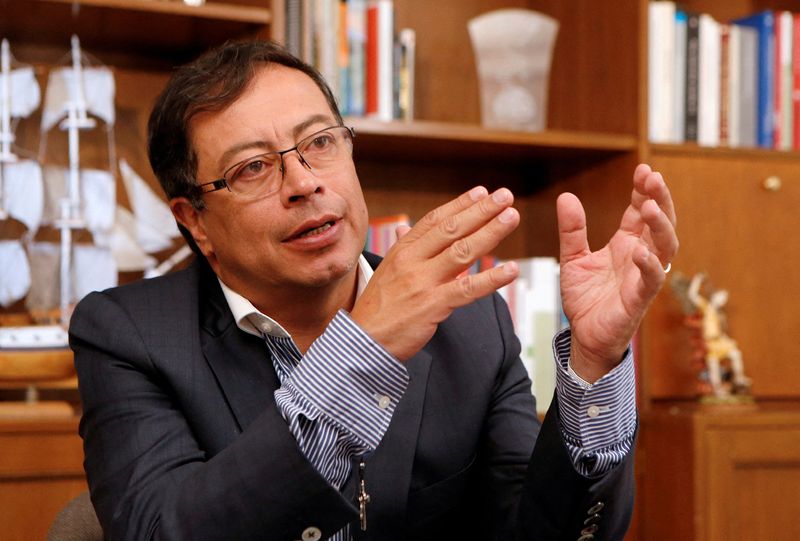BOGOTA (Reuters) - Colombia's government and the Estado Mayor Central (EMC), the largest FARC dissident group, on Tuesday said in a joint statement they would begin peace talks on Oct. 8 and start a 10-month bilateral, national ceasefire on the same day.
The EMC was founded by dissident former members of the now-demobilized Revolutionary Armed Forces of Colombia (FARC) rebels, who reject a 2016 peace deal signed by that group.
Talks between Colombia's government and the EMC are part of leftist President Gustavo Petro's attempt to end the country's armed conflict, which has run for almost six decades and killed almost half a million people.
Oct. 8 will see the "installation of peace talks and the declaration of the agreement to respect civilians and the (ceasefire), and a cessation of offensive operations," the parties said in the statement.
From Nov. 11 to Aug. 8, 2024 the parties will evaluate the implementation of both the agreement to respect civilians and the ceasefire, the statement added.
Colombia's government in May suspended a national ceasefire with the EMC in some areas of the Andean country following the murder of four Indigenous teenagers. The four minors were forcibly recruited by the group and then shot dead when they attempted to escape, Indigenous groups have said.
Colombia's attorney general suspended arrest warrants for more than 20 members of the EMC earlier in March to allow them to participate in the dialogue.

The members of EMC outright rejected the talks that led to the 2016 FARC deal, while the founders of a second group of dissidents, Segunda Marquetalia, rejected the accord three years after it was signed, alleging the state had not upheld its promises.
The government is also in peace talks with the National Liberation Army (ELN) rebels and the two sides have also agreed a bilateral ceasefire.